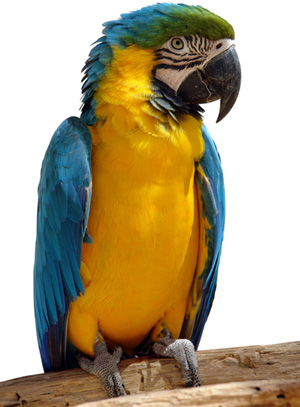

AG: Now, by (Velimir) Khlebnikov, a poem called “Menagerie” ( “Zverinets“, also translated as “Zoo”), which would be 19.. let’s see, 1909. Russia (St. Petersburg, probably, among a group that were hanging around a coffee-shop called The Stray Dog Cafe,where Khlebnikov and his friends resided.
[Allen then proceeds to read Khlebnikov’s poem “Menagerie” in its entirety]

“Oh Garden, Zoological Garden! /Where the iron is like a father reminding brothers to be brothers and stopping their bloody grapple/Where the Germans drink their beer and girlies sell their bodies/Where the eagles sit like an eternity finished with this day which still lacks evening/Where the camel knows the secret of Buddhism and harbors the grimace of China./Where the stag is pure terror, blooming like a massive rock/Where the finery of the crowd is swank. And the Germans bloom with health./Where the swan is a replica of winter, despite the beak like an autumn thicket and the black gaze somewhat guarded, even for a swan/Where the blue splendorial lowers a tail like Siberia seen from the rock of Pavda when the clouds throw a net of blue over the gold foliage and the green of the forest, all of it tinted variously by the roughness of the land/ Where the monkeys, variously angry, flaunt the tips of their torsos..” – (that’s a very elegant way of saying flaunt their pricks, I suppose!)

– “Where the elephants, squirming as mountains squirm during an earthquake, beg a child for food, imparting an ancient sense of the truth – “Give me food. I want to eat” – and then kneel as if to supplicate/Where the bears scramble deftly up and then look down, awaiting the orders of their keeper/Where the bats hang suspended, like the heart of a modern Russian/Where the breast of the falcon suggests the downy clouds that precede a storm/ Where the low-flying bird pulls in its wake the sunset and all the coals of its fire/Where the tiger’s face, with its frame of white beard and the eyes of an elderly Moslem..” – (that’s a tiger’s face)

– “with its frame of white beard and the eyes of an elderly Moslem, we pay hommage to the first Mohammedan and read the essence of Islam/Where we begin to see the faiths as ebbing currents of waves whose surge is the various species/ And that the earth harbors animals in such multitude because each of them sees God in its own way/Where the cannon shot at noon compels the eagles to gaze skyward in expectation of a storm/Where the eagles plummet from their lofty perches like idols toppled by an earthquake from temples and rooftops/Where after a brief rain the ducks of a certain species cry out in unison, as if offering a thanksgiving prayer to the deity of ducks – has it feet and beak?/ Where the ash-silver guineau fowl have the aspect of professional beggars/ Where in the Malayan bear I refuse to recognize a fellow northener and discover the Mongol there concealed/Where the wolves convey compliance and devotion/ Where the parrots and their stifling habitat acccosts me as I enter with their coral salutations – “Idiots! Idiots!”

– (With a parrot) – “Where a fat and glistening walrus undulates, like a langid beauty, his black, slippery fan-shaped foot, then leaps into the water, and when it slides once more onto the ramp, upon its massive greasy body, appears with spiny bristles and smooth brow, the head of Nietzsche/Where the jaw of the white black-eyed exalted llama and the jaw of the flat-horned buffalo move evenly to the right and to the left, as does the life of the land with popular representation and a government responsible to the people – that paradise desired by so many/Where the rhinoceros holds in its red-and-white eyes the unquenchable fury of a toppled tsar – he alone, of all the animals, regards mankind with the unconcealed disdain which tsars reserve for slave rebellions. In him lurks Ivan the Terrible/ Where the gulls with long beaks and cold blue eyes that seem rnged by spectacles resemble international financiers, confirmation of what we find in the adroit way they filch the food thrown to the seal/Where remembering that the Russians were wont to call their chieftains by the name of falcon, and remembering the keenness of Cossack and falcon eye alike, we begin to know who instruct the Russians in the art of war/Where the elephants, their trumpet-calls forgotten, make a sound that seems to mourn their sad condition./Do they make such paltry sounds in deference to our own excessive falconness? I don’t know/ Where the animals loose lose their marvelous potentialities, like “The Song of Igor’s Campaign” embedded in a Book of Hours.”
 ( “A Book of Hours “ is a monastic book, in one copy of which, a more pagan Russian epic, the early Russian epic, the “Song of Igor’s Campaign” manuscript was found).
( “A Book of Hours “ is a monastic book, in one copy of which, a more pagan Russian epic, the early Russian epic, the “Song of Igor’s Campaign” manuscript was found).
That’s not exactly the same reversals (as Whitman’s “Respondez”), it’s just the use of the line, the use of the long line – and the anaphoric “let…let…let” Whitmanic style that I thought was interesting. I ran into it the other day.
Student: Isn’t that..
AG: Velimir Khlebnikov..
Student: …a litany..
AG: Yes, similar to a litany.
Student: ..and you use that in…
AG: Yeah
Student: Kaddish?

[Audio for the above may be heard here beginnng at approximately twenty-one-and-three-quarter minutes in and concluding at approximately twenty-seven-and-three-quarter minutes]

